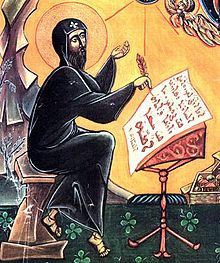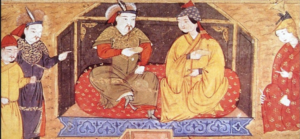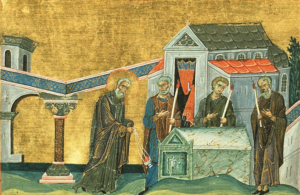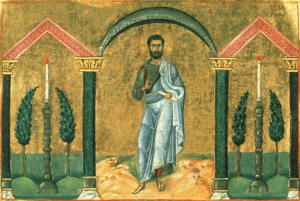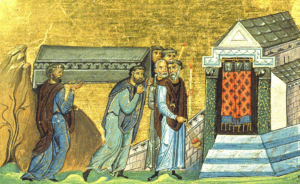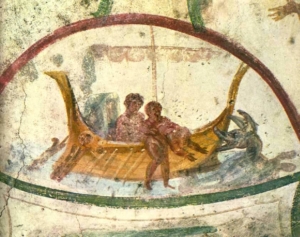“While the dying person addresses his last words to us, suddenly his tongue is at a loss, his eyes dim, his mouth falls silent, his voice paralyzed when the Lord’s troops have arrived, when His frightening armies overwhelm him, when the divine bailiffs invite the soul to be gone from the body, when the inexorable lays hold of us to drag us to the tribunal… Then the angels take the soul and go off through the air. There stand principalities, powers and leaders of the adverse troops who govern the world, merciless accusers, strict agents of an implacable tax bureau, like so many examiners that await the soul in the air, ready to demand a reckoning, to examine everything, brandishing their claims, that is to say our sins: those of youth and of old age, those intentional and those not so, those committed by actions and those by words or thoughts. Great then is the fear of the poor soul, inexpressible its anguish when it sees itself at grips with these myriads of enemies, who stop it, push and shove it, accuse it, hinder it from dwelling in the light, from entering into the land of the living. But the holy angels, taking the soul, lead it away.
